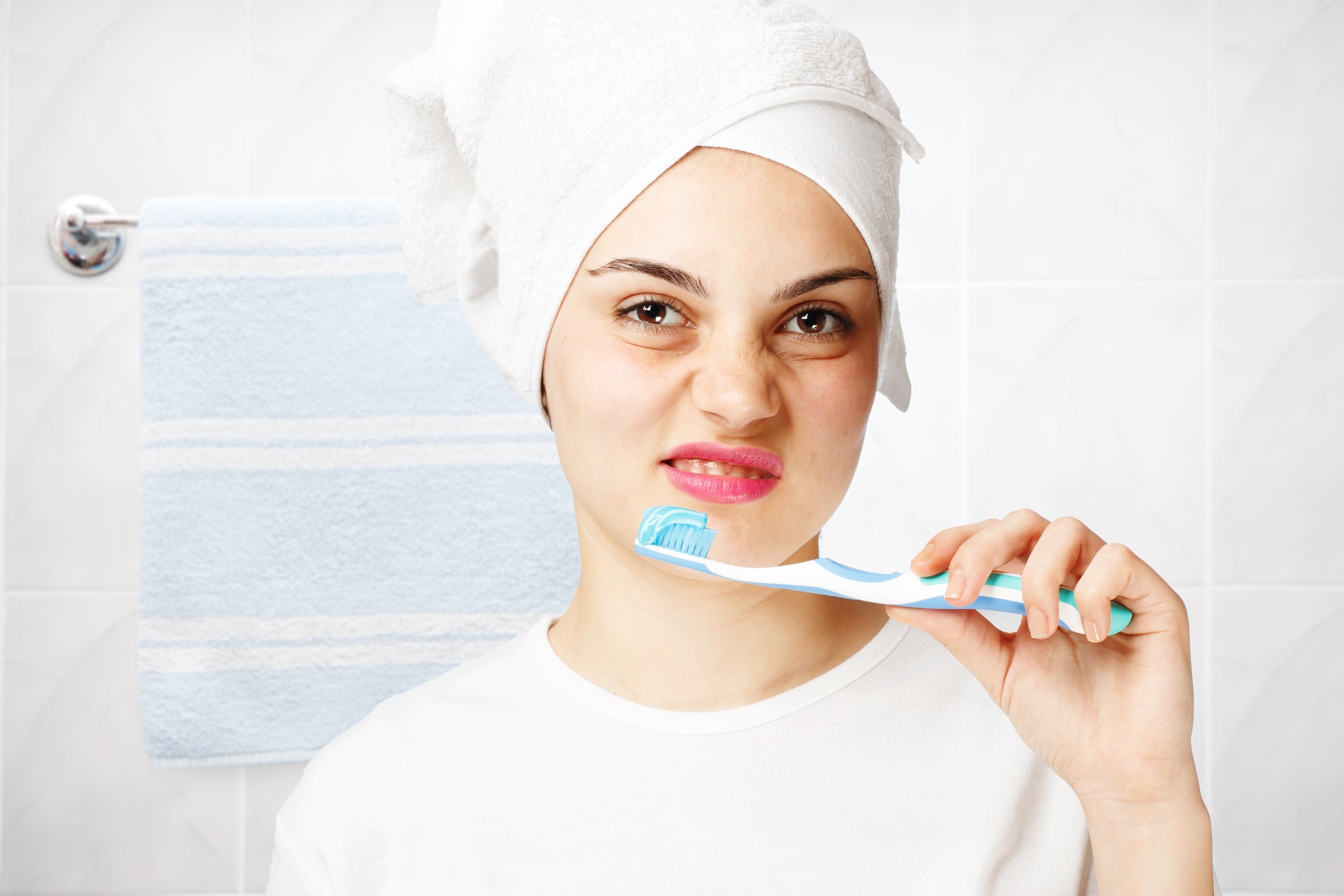Half of British people unhappy with their teeth, study claims
'Consciously not smiling can trigger feelings of anxiety, lack of confidence and low self-esteem'

Half of Britons do not like their teeth and believe that they hold them back at work and in their personal lives, a new survey claims.
The research, commissioned by on-demand teledentistry company Straight Teeth Direct, found a large percentage of those surveyed think their teeth affect them on an almost daily basis.
Teeth also came third in a list of the things in life we stress most about - with only finances and relationships ranked more highly.
One in five of those surveyed said that their teeth had more of a negative effect on their confidence than their physique, hair or wrinkles.
And one fifth said they are becoming increasingly "introverted" because they feel so self-conscious about smiling and laughing.
It also emerged that 61 per cent of the 2,000 adults surveyed have been regarded by others as "miserable" because they do not smile very often.
Dr Aalok Shukla, CEO and co-founder of Straight Teeth Direct, which commissioned the study, said: “Smiling is the most natural thing in the world.
''It's an important way to communicate across boundaries and languages.
“Consciously not smiling for fear of revealing your teeth can trigger a negative cycle comprising of feelings of anxiety, lack of confidence and low self-esteem.
“By connecting orthodontists to users directly through digital technology, a positive cycle can be created meaning more people can finally straighten their teeth, smile freely and feel their best.''
Over 15 per cent per cent of those surveyed said they are concerned that the appearance of their smile has had a negative impact on their career.
One in ten said they have been turned down for a job due to the poor condition of their teeth.
Many also said they were reluctant to smile in meetings or when meeting new people for fear they will be judged on their teeth.
Over a quarter said they avoid smiling as much as they possibly can, and 45 per cent said they do not feel comfortable posting pictures of themselves smiling on social media.
And one in 10 even said that they did not smile on their wedding day because they felt self-conscious about their teeth.
The survey shows those with stained, crooked or missing teeth are most likely to feel less confident.
One in five of those polled said feeling this way had impacted their ability to make friends, because they are wrongly perceived as "miserable" or "rude".
Forty six per cent have been told to smile more often, while 16 per cent have received negative comments about their smile or the way their teeth look.
The survey also found that more than a quarter have paid for procedures to improve the appearance of their smile - spending £692.91 on average in the process.
And one in 10 said they have used an app to make their teeth look whiter and brighter in photographs.
Health and wellbeing psychologist Hope Bastine's top tips for boosting self confidence:
1. List your strengths and accomplishments
Make a list of everything you have done that you feel proud of and everything you have done well. When you need a pick me up, remind yourself that you can get things done and do them well by re-reading the list.
2. Do a 360
Ask friends, family and colleagues for a list of your skills and attributes - including the impact you have on their life or why then enjoy having you in their life.
3. Random acts of kindness
Helping others can often help us to be less inward focused, soothing our own personal worries. It also feels good when you are able to make a difference.
4. Go with your gut
Your inner voice is a more potent source of wisdom than what you often give it credit for.
5. Dress fresh and inject some colour into your wardrobe
Start the day with fresh clothes and wear colours that make you feel good about yourself.
6. Get Smiling
Smiling really does make you happy.
7. Sleep for success
Sleep deprivation can have a detrimental effect on your mind, body and brain. Running on too little sleep wears down our normal capacity to deal with daily challenges and increases your odds of feeling overly sensitive and depressed.
SWNS
Join our commenting forum
Join thought-provoking conversations, follow other Independent readers and see their replies
Comments